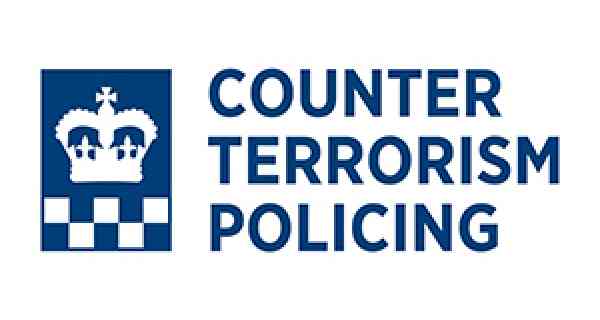
Identifying and removing terrorist content
Public reports have helped with 400 counter terrorism investigations in just under 12 months. Counter Terrorism Policing examines the work and significance of the Counter Terrorism Internet Referral Unit in turning the tide against terrorists online
With the help of around 1,300 referrals from the public in 2018 – some of which were from material encountered whilst at work - the Met’s Counter Terrorism Internet Referral Unit (CTIRU) has assisted with 400 live counter terrorism investigations across the UK in the past 12 months.
From January to November, 1,297 reports of online terrorist content were made by the public and passed to the CTIRU, which is part of the National Digital Exploitation Service (NDES), within the Met’s Counter Terrorism Command. As well as assessing the public referrals, officers from the CTIRU scour the internet on a daily basis to find terrorist content themselves.
This work has led to the CTIRU being actively involved in supporting 396 counter terrorism investigations from January to December 2018. This figure has doubled since 2017, when the CTIRU was supporting, on average, around 15 investigations per month, compared with 33 per month in 2018.
When the CTIRU was initially set up in 2010, it was predominantly focused on working with internet companies to get terrorist content removed from online. However, with the establishment of other internet referral units across the globe, the CTIRU has been able to significantly increase its investigative capabilities over the past 18 months. This has led to officers being able to spend more time identifying specific UK-based threats and then supporting investigations into the individuals or networks behind them.
Detective Chief Superintendent Kevin Southworth, from the Met’s Counter Terrorism Command, who leads the CTIRU, said: “We’ve been able in the past year or so, to concentrate more on investigating the individuals or networks who are posting terrorist material online. Where the CTIRU is able to identify a UK footprint, this will then be fed into investigations across the UK’s Counter Terrorism Network. It might be that we’re already investigating a suspect for terrorism offences, and the CTIRU finds further evidence of what they’re doing, or it might be that they haven’t come onto our radar before and we’ll then launch a new investigation.
“The public really do play a vital role in this. By reporting terrorist content they see online via the ACT website they are having an impact in two very important ways. Firstly, we’re able to request the removal of any terrorist content, which means those who are potentially vulnerable to radicalisation don’t then come across that material. Secondly, and increasingly, it’s leading us to identify the people or networks behind the content, investigate and stop them, and bring them to justice.
“It’s also important for people to remember that this applies equally to any terrorist-related material or content they might encounter through their work, as much as anything they might come across in their personal lives. Virtually every business will have some sort of online presence, so it’s important they too think about reporting any suspicious material to police, the same way that any responsible member of the public would.”
One such case led to the identification of 29-year-old Mohammed Kamal Hussain from east London, who was encouraging and inviting support for Daesh online. The investigation into Hussain all stemmed from a public report after a man received a Facebook message from Hussain encouraging him to join Daesh. The report came to the CTIRU, where officers linked the message back to Hussain and an investigation was launched. Hussain was eventually arrested, charged and jailed in February for seven years for terrorism offences.
In another case this year, the CTIRU supported detectives based in Counter Terrorism Policing North West (CTPNW) with their investigation into Husnain Rashid. Rashid, from Lancashire, was found to be posting thousands of online messages in which he was encouraging others to carry out attacks and posting instructions on how to make explosives and administer poisons.
Despite Rashid going to great length and effort to try and cover his tracks, specialists within the CTIRU, working with CTPNW colleagues, were still able to build a comprehensive picture of the channels and posts Rashid was responsible for, which culminated in him being jailed in July for a minimum of 25 years for various terrorism offences.
A proactive approach
Since 2010, the CTIRU has worked to get 310,000 pieces of online terrorist material removed. Specialist officers assess material to determine its nature and whether it breaches any terrorism legislation, and where it does, take steps to get it removed by the host website or platform.
But the shift in focus from removals to investigations has been possible, in large part, due to the fact that internet and technology companies and content providers are now becoming more effective at removing the content themselves – much of this has been achieved through initiatives, such as the Global Internet Forum to Counter Terrorism, as well as content providers becoming more proactive in their approach following the various terrorist attacks globally in recent years. A key driver for progress in this and other initiatives has been the Home Office, with whom the CTIRU enjoys a close working relationship, both in terms of policy and strategy.
A report by Facebook stated 9.4 million pieces of Islamist-related content was removed from the platform between April and June 2018. Similarly, Twitter has reported that between July and December 2017, nearly 275,000 accounts were permanently suspended for violations related to the promotion of terrorism, with over 1.2 million accounts suspended for terrorist content since August 2015.
Over the past four years, the CTIRU, which was the first unit of its kind to be established in the world, has also shared its model with other nations – particularly in Europe and the ‘Five Eyes’ countries. With the introduction of similar units around the world, it has shared the responsibility of identifying and removing terrorist content, enabling the CTIRU to take a more proactive investigative approach.
Detective Chief Superintendent Southworth, added: “At its height, around 2016, the CTIRU was identifying and removing around 10,000 pieces of content every month, but this has reduced considerably in the past year. It’s not because the material is no longer there, but that others are now stepping up and taking more responsibility – particularly major communication service providers.
“It’s a reflection of the excellent work and dedication of the officers in the CTIRU and their efforts to both raise awareness of this issue across the industry, and export the CTIRU model to other countries around the world that we’re seeing the tide turn against terrorists online. We cannot, however, afford any complacency and we will continue to work with the public, partners and industry to make the internet as hostile a place as possible for terrorists.”
To report material online, simply fill in the confidential form.











